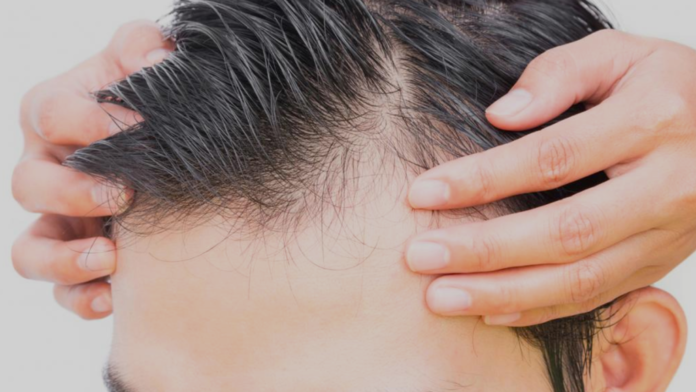Hair transplant is a widely recognized solution for individuals facing hair loss or thinning hair. It involves the extraction of hair follicles from a donor area—usually the back or sides of the scalp—and transplanting them into bald or thinning areas. The goal is to achieve a natural-looking hairline and fuller hair growth. When considering Hair Transplant in Dubai, individuals are often curious whether age plays a significant role in determining eligibility. While age is a factor, it’s not the sole determinant. Other considerations, such as hair loss pattern, scalp health, and overall well-being also matter greatly in the decision-making process.
Minimum Age Requirement for Hair Transplant
Why Younger Patients Are Often Advised to Wait
Patients under the age of 25 are generally advised to wait before undergoing a hair transplant. This is because hair loss in younger individuals is often still progressing. Transplanting hair too early might result in an unnatural appearance as native hair continues to fall out, leaving behind isolated patches of transplanted hair. Moreover, in younger patients, the full pattern of hair loss has not yet stabilized. This can make it challenging for specialists to predict future hairline recession and plan accordingly. Therefore, patience and early consultations focused on prevention may be more beneficial for younger candidates.
Recommended Age Range for Stable Results
Hair transplants tend to yield more stable and aesthetically pleasing results in individuals aged 27 to 45 years, when hair loss patterns have generally stabilized. At this age, most patients have realistic expectations, stable donor areas, and can maintain results more effectively with proper aftercare.
Recommended Age Range and Suitability for Hair Transplant
| Age Group | Suitability Notes |
|---|---|
| Under 20 | Not suitable; hair loss pattern still developing |
| 20-25 | Caution advised; best to delay unless pattern is very well-defined |
| 27-35 | Ideal age range; stable hair loss and better recovery potential |
| 36-45 | Suitable; requires careful planning |
| 46 and above | Depends on health and donor area quality |
Hair Transplant in Older Adults
Can Older Adults Benefit from Hair Transplant?
Yes, individuals above 50—even those in their 60s—can still be eligible candidates for hair transplant procedures. The determining factors include:
- The quality and density of the donor hair
- General health conditions such as blood pressure, diabetes, or heart issues
- Scalp condition and elasticity
Older adults may benefit from a more conservative approach that restores density without overcorrecting. Many mature individuals seek hair transplants not only for aesthetics but also to regain confidence and improve self-image.
Key Factors by Age Affecting Hair Transplant Success
| Factor | Young Adults (<25) | Middle-Aged (25–45) | Older Adults (45+) |
|---|---|---|---|
| Hair Loss Pattern | Unstable | Stabilized | Varies; often complete |
| Donor Hair Density | High | High to Moderate | May be reduced |
| Scalp Elasticity | Good | Good | Reduced |
| Healing Speed | Fast | Moderate | Slower |
| Risk of Further Hair Loss | High | Moderate | Low to Moderate |
Psychological Maturity and Expectations
The Role of Mental Readiness
Beyond physical factors, psychological readiness plays a huge role in hair transplant success. Young individuals often have unrealistic expectations, hoping for immediate or celebrity-like results. This can lead to dissatisfaction even after a successful procedure In contrast, middle-aged or older patients often undergo the procedure after thorough research, with more grounded expectations and long-term commitment to aftercare, which contributes to higher satisfaction rates.
Gender and Age Considerations
Differences in Male and Female Candidates
While hair transplants are more common among men, many women also consider the procedure to combat thinning hair or pattern baldness. Women of all ages may be candidates, depending on the cause and extent of hair loss. However, age-related hormonal changes in both men and women can impact hair health and transplant outcomes.
Special Cases in Teenage or Pediatric Hair Loss
Hair loss in teenagers or children is often linked to medical conditions such as alopecia areata, fungal infections, or trauma. In such cases, non-surgical treatments are usually explored first. Hair transplant for individuals under 18 is rarely recommended unless it’s for reconstructive purposes due to injury or congenital conditions.
FAQs
1. Is there an upper age limit for getting a hair transplant?
There is no strict age limit, but overall health, scalp condition, and donor hair quality matter more than chronological age.
2. Can teenagers undergo a hair transplant?
Hair transplant is generally not recommended for teenagers unless in specific medical or reconstructive cases.
3. Is the hair transplant result permanent at any age?
Yes, transplanted hair is typically permanent; however, existing native hair may continue to thin, requiring future maintenance.
4. Does healing take longer in older adults?
Yes, healing may be slower with age due to reduced skin elasticity and slower cell regeneration.
5. Will age affect the density of transplanted hair?
It can. Donor hair density often declines with age, which may limit the achievable thickness but still significantly improve overall appearance.
Conclusion
When it comes to Hair transplants, age is one of many variables that influence the suitability and success of the procedure. While younger patients should wait until their hair loss stabilizes, older individuals can still benefit from transplants if they are in good health with sufficient donor hair. The best results come from personalized evaluations, realistic goals, and a comprehensive approach to treatment. Whether you’re in your late 20s or late 60s, the key to successful hair restoration lies in timing, planning, and choosing the right method tailored to your stage of hair loss.
































